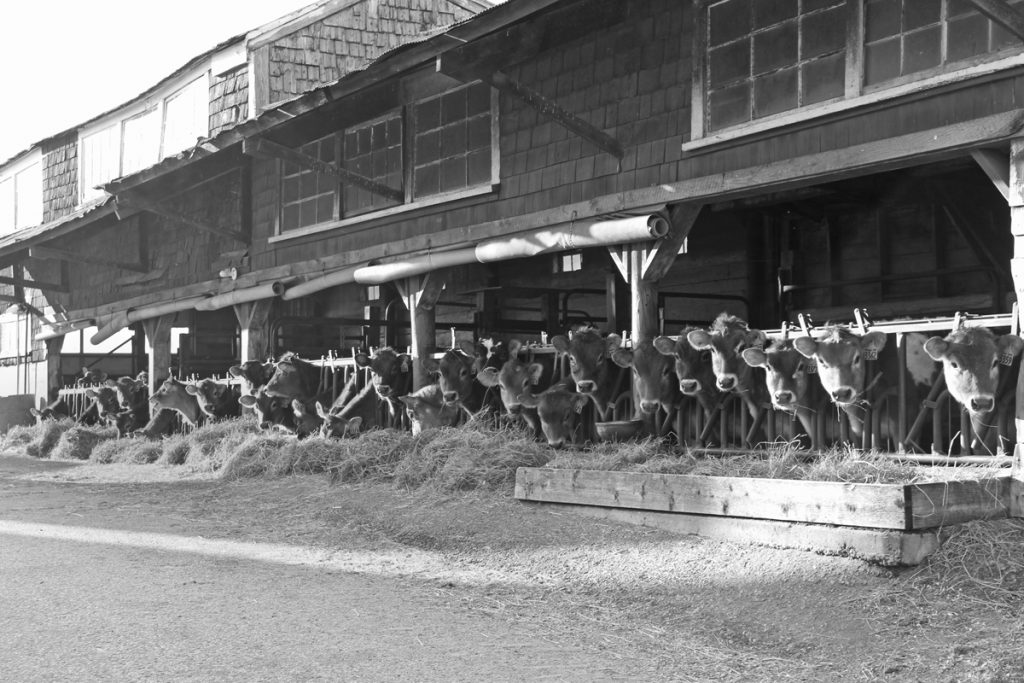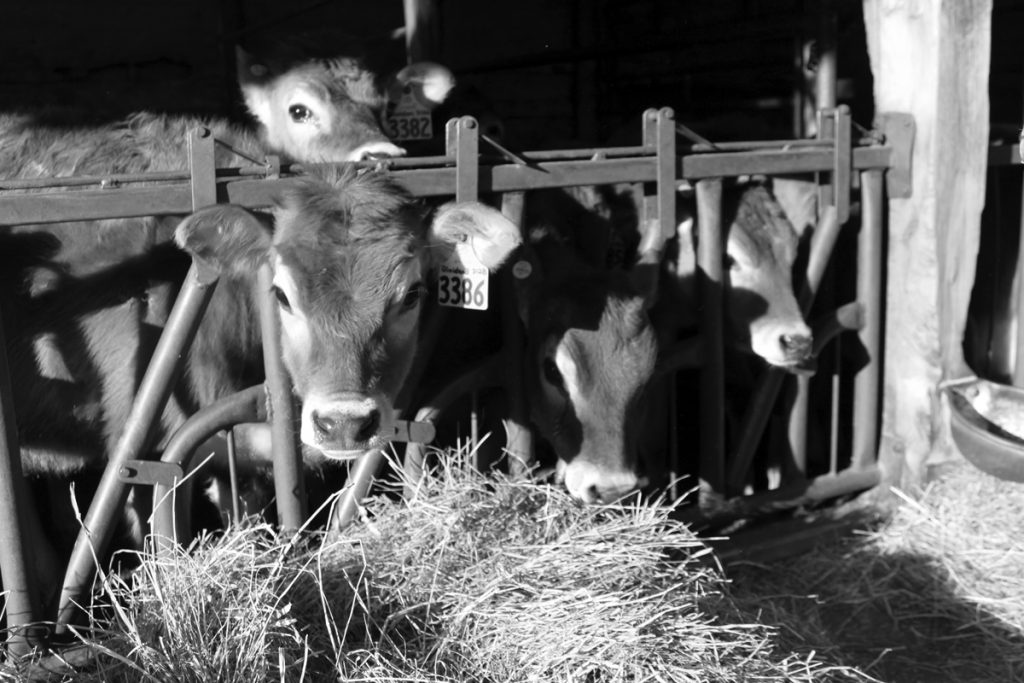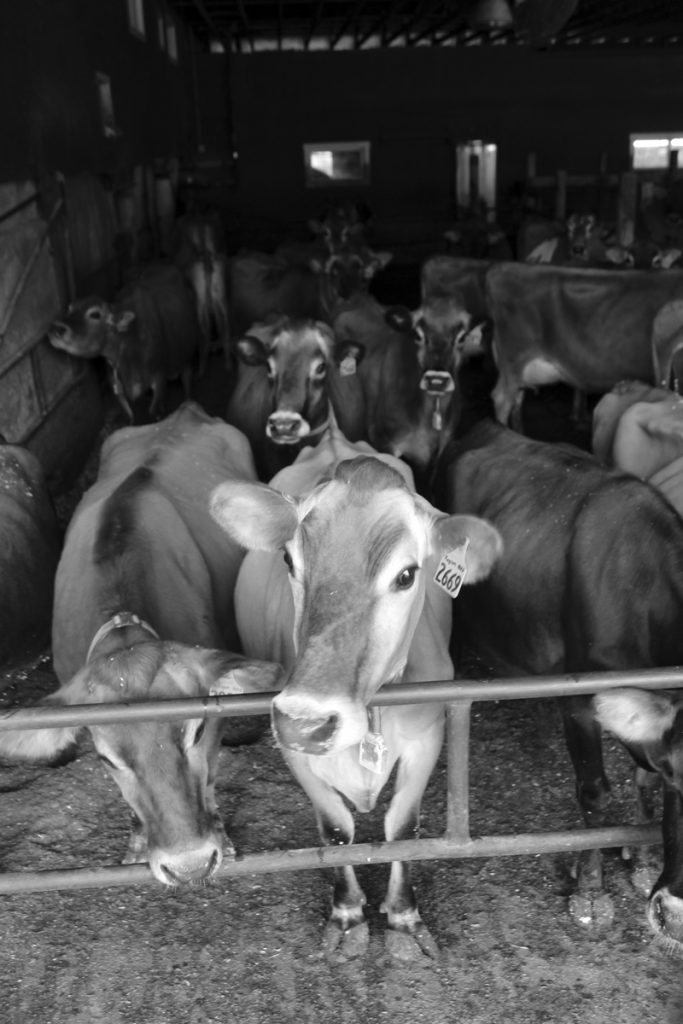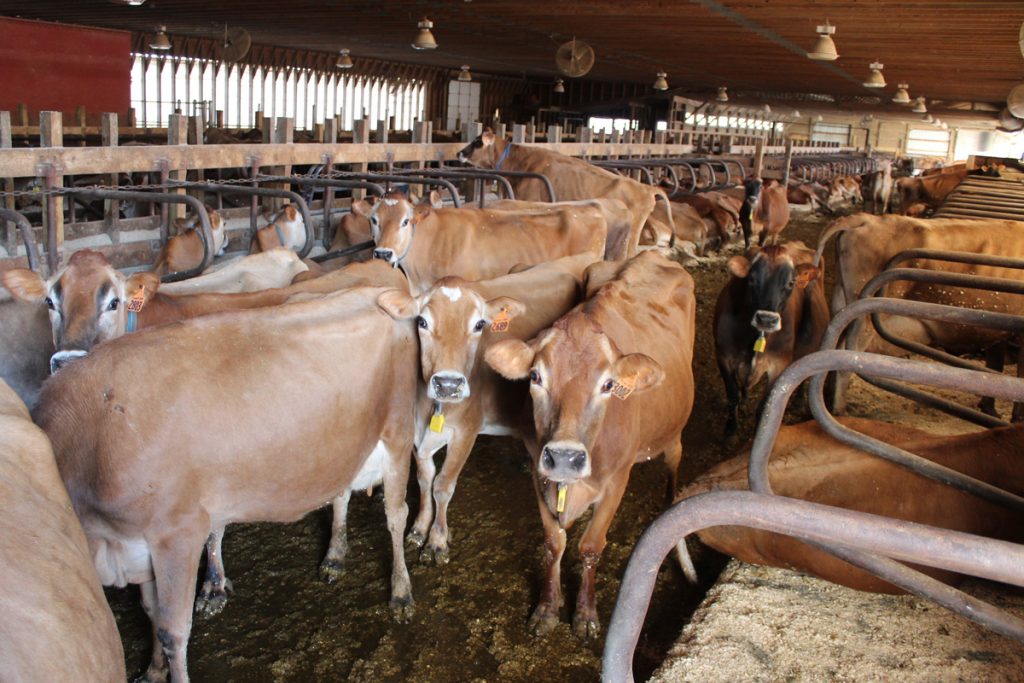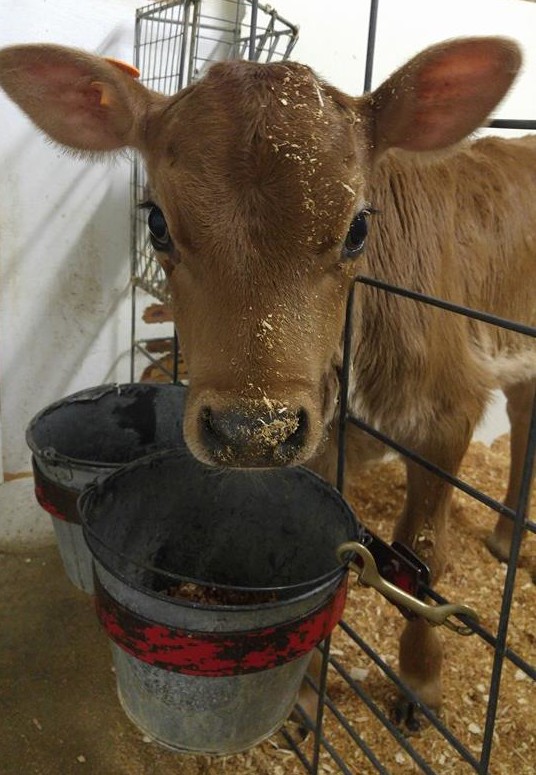Yankee Ingenuity at Work on Highland Farms
In 1953, Jennifer Kimball and Johanna Chapman’s great-grandfather Robert Pike thought, “There has got to be a better way to milk cows.”
The process involved bending over to clean and prep the cow’s udder before attaching a milking unit to each cow as she stood in her stanchions. They were only able to milk a few cows at a time before bending over to take the milking unit off and starting the whole process over on another cow. With Jerseys being shorter than other breeds, the bending required was much deeper.
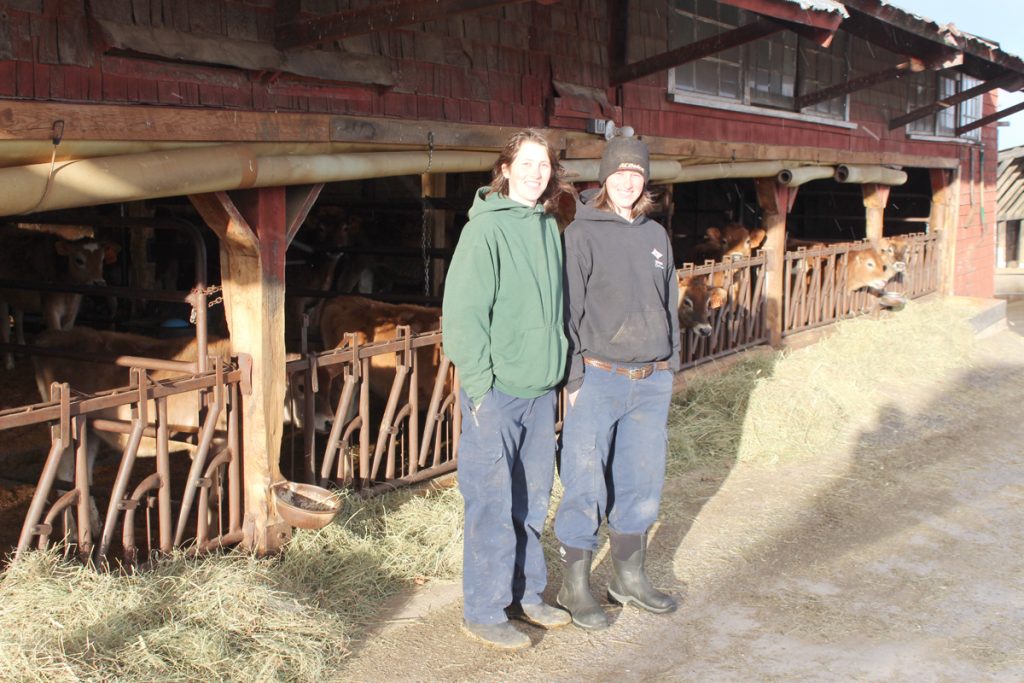
Robert Pike started digging. He dug down with a shovel, creating a pit so that the cows were above him. Highland Farms in Cornish became the first dairy farm in Maine to install a milking parlor.
The farm had the first registered herd of Jerseys in the nation when it was started in 1886 by David Pike and his sons, Wyer and Fred. Apparently that Yankee ingenuity and do-it-yourself spirit are genetic. Jennifer and Johanna, 29 (they’re twins if you couldn’t tell from the photo), look to leave their mark on the farm.
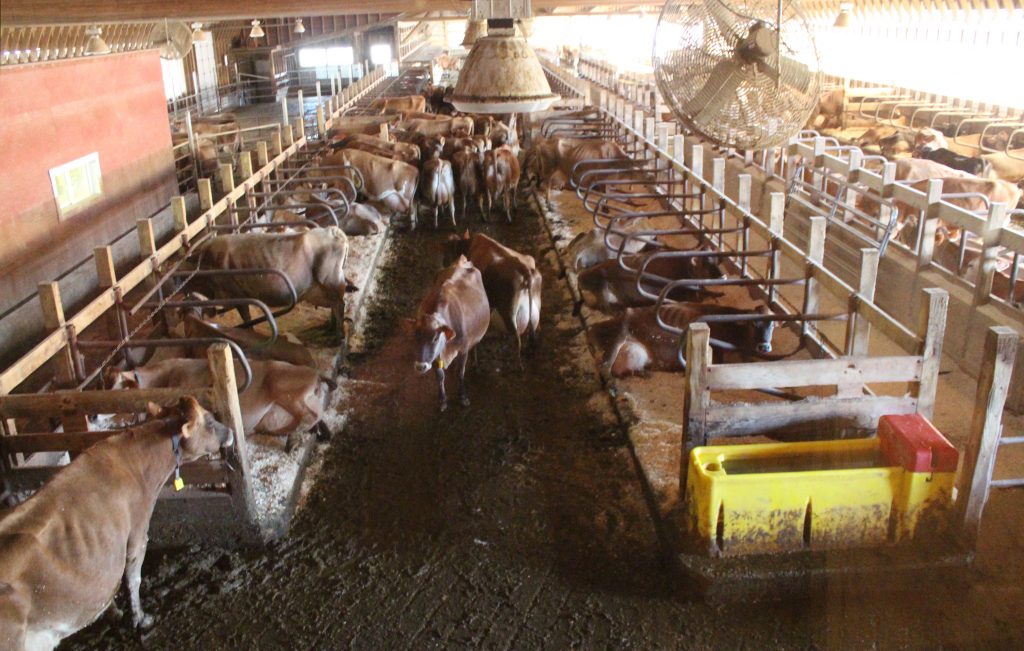
Both earned degrees in applied animal science from the University of New Hampshire in 2006. They came home with the knowledge that was useful for the farm.
“They have their ideas about what they want to do, and they are putting it to work,” said their mother Libby who manages the farm with other members of the fifth generation, her brother Daniel Palmer and cousins Lorie and David Pike.
One of the biggest changes Johanna and Jennifer are looking to make is calf housing. Currently, calves are raised in hutches during the warmer months then moved into individual stalls in the main barn for the winter. Many dairy farms are now moving towards raising calves together in open pens.
Sometimes, they even keep those groups together for the first 2-3 years before moving them in with the rest of the milking herd to reduce stress. The older, larger cows can be pushy with the younger ones. Highland Farms group houses their calves and uses automatic feeders, so calves can drink when they want rather than being individually bottle fed twice a day.
Libby’s generation also made changes when they came back to the farm to live and work, always looking to improve efficiency and cow comfort. The barn built in 1903 had two stories. The lower was a bedded pack area for the milk cows. They wanted to improve ventilation and air quality by removing the top floor, creating an open, airy free-stall barn.

Five family members work full-time on the farm. Three split their time between the three family businesses, Highland Farms Dairy, Highland Farms Trucking, and Highland Farms Logging. The farm owns 1,200 acres on Towles Road in Cornish. It actually owns the whole road.
“There used to be 4-5 other farms on the road,” Libby said, “but as they sold out because the owners had no next generation to take over, her grandfather bought the farms so they would remain in agriculture.”
The houses and barns were not torn down. As the family grew, they moved into those homes. About 160 acres are planted for corn silage.
Another 150 acres is cut for hay and silage and 100 acres are rented. Meanwhile, the remaining 1,000 acres is woodland. Judging from the views, the land would make prime real estate for housing development, but it doesn’t look like that will happen.
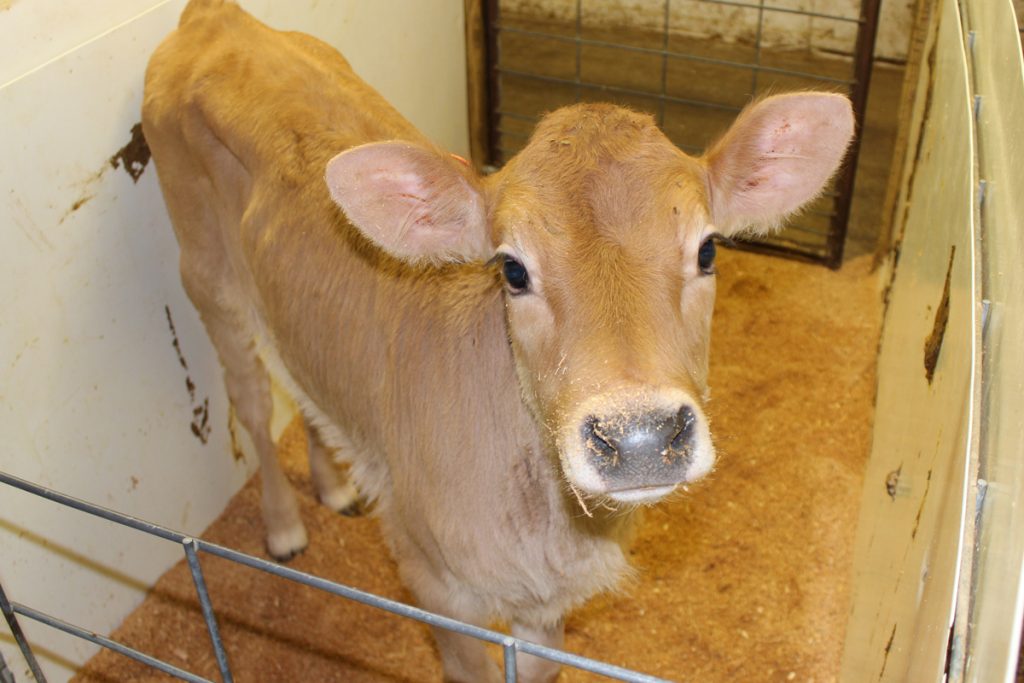
Upon returning from college, Johanna and Jennifer took over their grandparents, John and Allaire Palmer’s duties, specifically raising the calves. They made a science of it as they experimented with milk, feeding, and treatments to develop a set of best practices that give their animals the healthiest start possible. Beyond that they do any job that needs to be done, cleaning the barns, making sure the dairy cows always have feed available to them, and milking cows on the weekends.
Jennifer does all the breeding. They are also slowly assuming more of their mother and uncle’s responsibilities. The family is now looking forward to the seventh generation that will take over the farm one day. Jennifer’s 2 1/2 -year-old son is already helping out, learning to count as he scoops out the calves’ grain.
